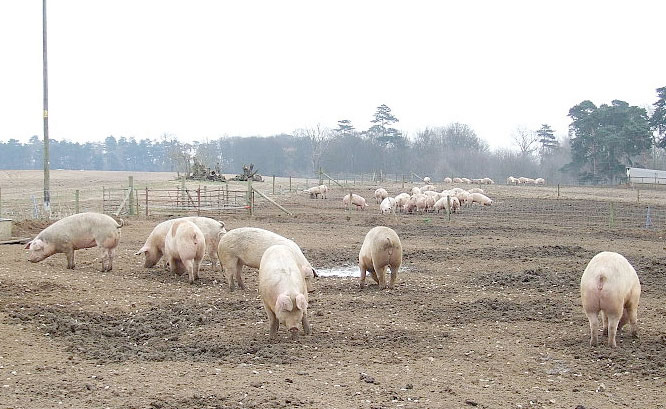
Pork shortages will be a key concern in many countries in the coming months as the ongoing spread of porcine epidemic diarrhoea virus (PEDv) in the Amerias and Asia will have a material impact on pork supply in the summer, according to a new report.
Exacerbating tight global supply is Russia’s ban on EU pork imports after recent African swine fever (ASF) outbreaks. However, oversupply in China is expected to continue, driven by high sow liquidation.
“PEDv has been the driving force pushing up pork prices, especially in the US, to record highs,” said Rabobank analyst, Albert Vernooij.
“US futures climbed 30% in Q1 and are up 45% over last year, impacting pork users and consumer’s ability to source enough pork for their needs.”
Rabobank believes the outbreak of PEDv in the US, Mexico, Japan and South Korea will lead to a likely decline in global pork production in 2014 (against an earlier expected 1.3% increase). In the US, where the PEDv outbreak has been most severe, Rabobank estimates that pork production could decline to mid-single digits (6-7%) in 2014 due to hog losses from the virus.
Producers have not been required to report PEDv cases to the Department of Agriculture, making the impact on production unclear. The impact of PEDv in Asia, especially in Japan and South Korea, is sizable, but difficult to estimate as the spread of the disease is not known.
In Russia, prices have spiked since its ban on EU pork imports, following the discovery of ASF in wild boars in Poland and Lithuania.
The ban means a loss of 1.3 million tonnes of pork imports, about one third of Russia’s total import volume in 2013. This has resulted in short supply and higher prices in Russia, but with North America expected to feel the impact of PEDv for the remainder of 2014, Russia will have few alternatives to fill the void left by the EU.
However, stress on global pork supplies is currently being eased by the supply glut in China, the world’s largest producer and consumer of pork. Experts say Chinese pork prices will continue to fall in Q2 and into Q3 2014, more than a year after the price decline began.
Sow liquidation, which commenced in April, will drive prices lower this summer as supply and demand rebalance. Looking to the back half of the year, the continued sow liquidation should help Chinese pork prices recover by the end of Q3 2014 in line with the seasonal increase of China’s pork consumption.
“In China, pork consumption is expected to remain steady in 2014, as hog supply will continue to be at a relatively sufficient level,” commented Vernooij.
NPA in Brussels for PEDv talks
NPA's Dr Zoe Davies, together with NFU representatives, will meet officials from the European Commission's health and welfare department today, to explain the extraordinary infectivity and virulence of PEDv, and to call for measures to reduce the risk of it spreading to the European Union.
Until the last few days the Commission and member countries — including pig producers themselves, and their representative bodies — have paid little attention to PEDv, believing the European Union's main biosecurity threat comes from African swine fever.
But PEDv is not a notifiable disease in Europe and is not subject to movement controls, so if it arrived in a European Union country via live imports of breeding pigs, or contaminated porcine plasma, it could quickly spread to Britain.
French ban includes blood
The two main sources of transfer of PEDv to Europe are the introduction of a live animal excreting the virus or animal feed that contains contaminated pork products, say the French authorities who, on Saturday, announced a ban on live pigs, porcine blood products, pork-based products and pig sperm, from North America, Mexico and Japan.
France proposed a European Union embargo last month on pigs and feed from the United States but although there was support from some pig-producing countries, the European Commission rejected the initiative.
France hopes its unilateral action will now be extended across the European Union.
